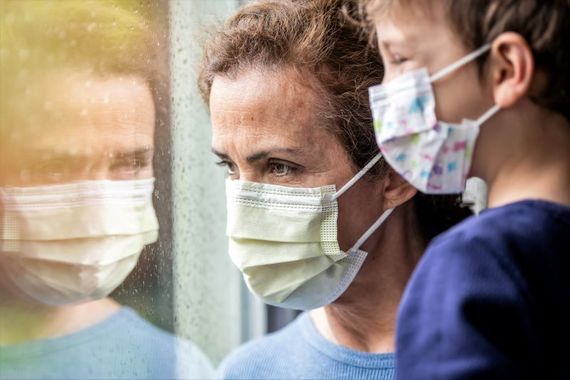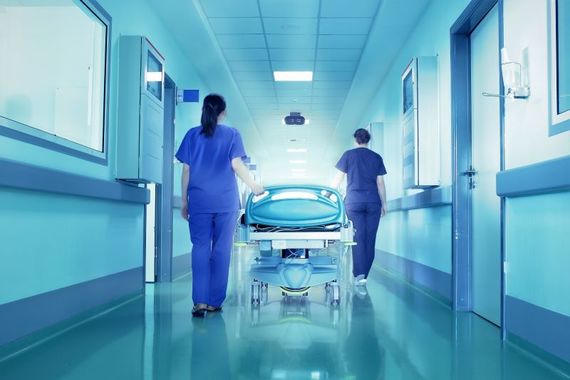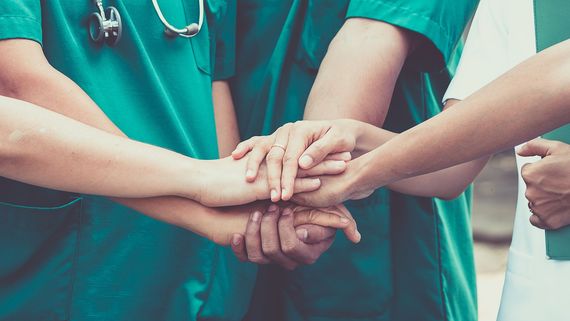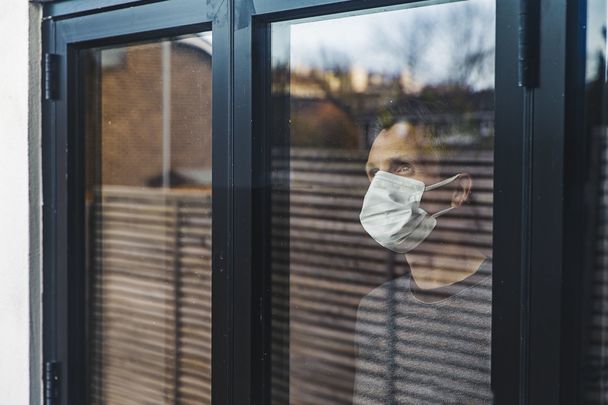That thought has kept me busy lately because it's a challenge I have been setting myself to make the most of this ongoing lockdown.
It turns out that there really are some right ways to live through a global pandemic. Some people have spent this time becoming better reacquainted with their own families, for example, doing previously unheard of things like sitting down together each night for a family dinner. It's changing their lives.

Some have begun that dream project they didn't have the time for before the world changed. Still, others are finding a multitude of ways to be useful and productive by helping others, reaching out to isolated neighbors and friends, reminding people that this is a shared experience, a fact that can easily get lost for many.
Most of us realized early on was that scrolling endlessly through news updates on social media looking for any signs of hope or horror is detrimental to our health and functioning.
Like most people, I have used the time to ask myself what is truly important to me, how to bring more balance into my life now, and how to carry that balance onward when this sad time ends, and it will end.
Read more: Matt Damon's "fairytale" lockdown stay in Ireland comes to an end
I have said this elsewhere but it bears repeating: I have lived through the Troubles, the AIDS crisis, 9/11 and Superstorm Sandy, and this pandemic is worse, its effects are even more far-reaching, I think. It's savage in its danger, indiscriminate in its attack and life-altering in its consequences.
More Americans have died of the coronavirus in the last three months than in the Korean, Vietnam, and post 9/11 wars combined. The United States has the most cases and also the most deaths, already surpassing 100,000. We are living through one of the darkest chapters this nation had ever seen.

The worst part is what COVID-19 has already done to the world we knew which (despite all the footage you saw of people partying and going to the beach unmasked and unprotected this weekend) is not coming back soon.
So the first lesson of this pandemic is how vulnerable we all are. That is always a useful lesson to re-learn. America teaches rugged individualism and self-reliance, but pandemics teach us about interdependence and community. That's why pandemics always have the edge and communal efforts are the only way to respond to them.
Read more: Irish New Yorkers on adjusting to life in lockdown
The second lesson is that everyone and everything connects. From the airports and travelers that first brought the virus here to the cities and public gathering places where it spread, we inhabit shared space worldwide and a threat to one will sooner or later become a threat to all.
Selfishness can't survive pandemics, in other words, it's foolish to think that your better bank balance or better health insurance implies better odds.
The third lesson is that your health is not just your own. Your neighbor who thinks he's impervious and doesn't have to wear a mask, the social distancing policies your grocery stores enforce or ignore, your work place's safety procedures, or lack of procedures, all now will have an impact on whether you will become infected yourself.

The fourth lesson is that caring for yourself implies caring for others. Washing your hands, wearing a mask, building habits to mimic normal life until normal life returns, staying home as much as possible, and taking the extra steps to help others and yourself weather the lockdown are all best practices.
Recall how this pandemic began with the president insisting that it was a cheap hoax and then that it would disappear soon and then that we had nothing to worry about? Now watch him shrugging on our TV's that over 100,000 Americans have died from it, but it could have been worse.
Really? What have you learned about him from this awful experience? Has the sight of him going golfing this Memorial Day weekend as the country recoils from catastrophe taught you anything? Remember that too when the time comes.
The best way to survive a plague is to make yourself useful. You can give in to the depression and be carried off on a tide of despair, or you can do what our grandparents' generation did and roll up your sleeves and ask where you can help.
There are so many ways you can. Start by checking in on your neighbors. Join virtual support groups to check in on the homebound and seniors if you can. Give blood if you can safely commute to do so. Don't panic shop or hoard supplies. Make a donation to a non-profit or a political campaign that comports with your interests. Find a local aid network and volunteer your services when you can.
But most of all take care of yourself so you can better take care of others.
What are you doing during the pandemic? Let us know in the comments section below.
Read more: Why some of my anti-Hillary friends are leaning towards Biden 2020




Comments